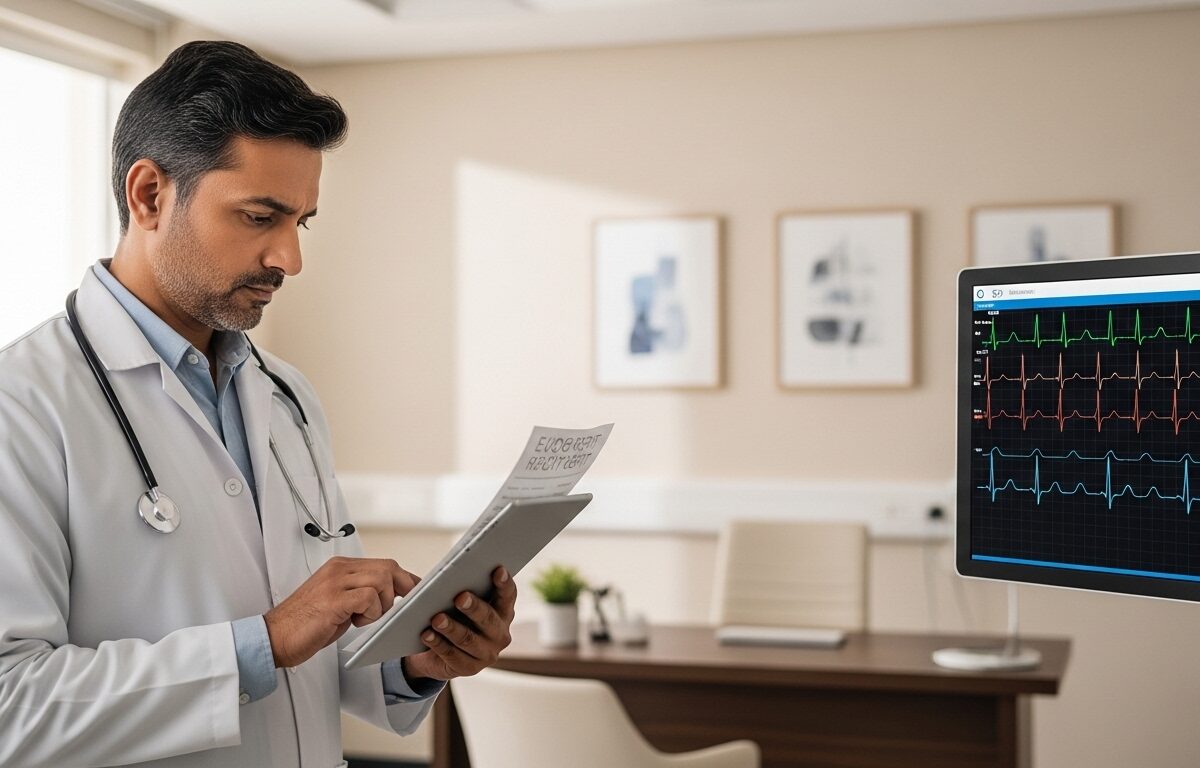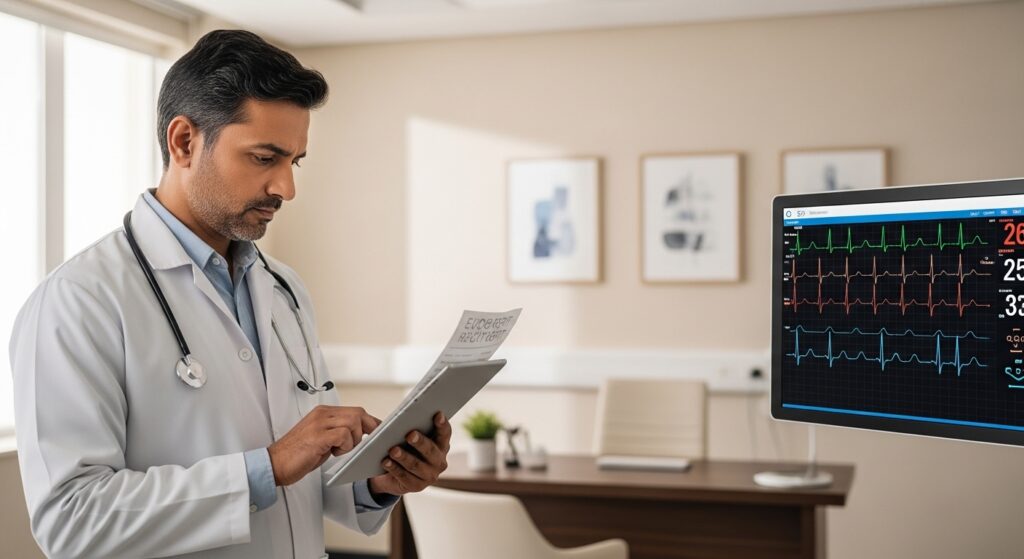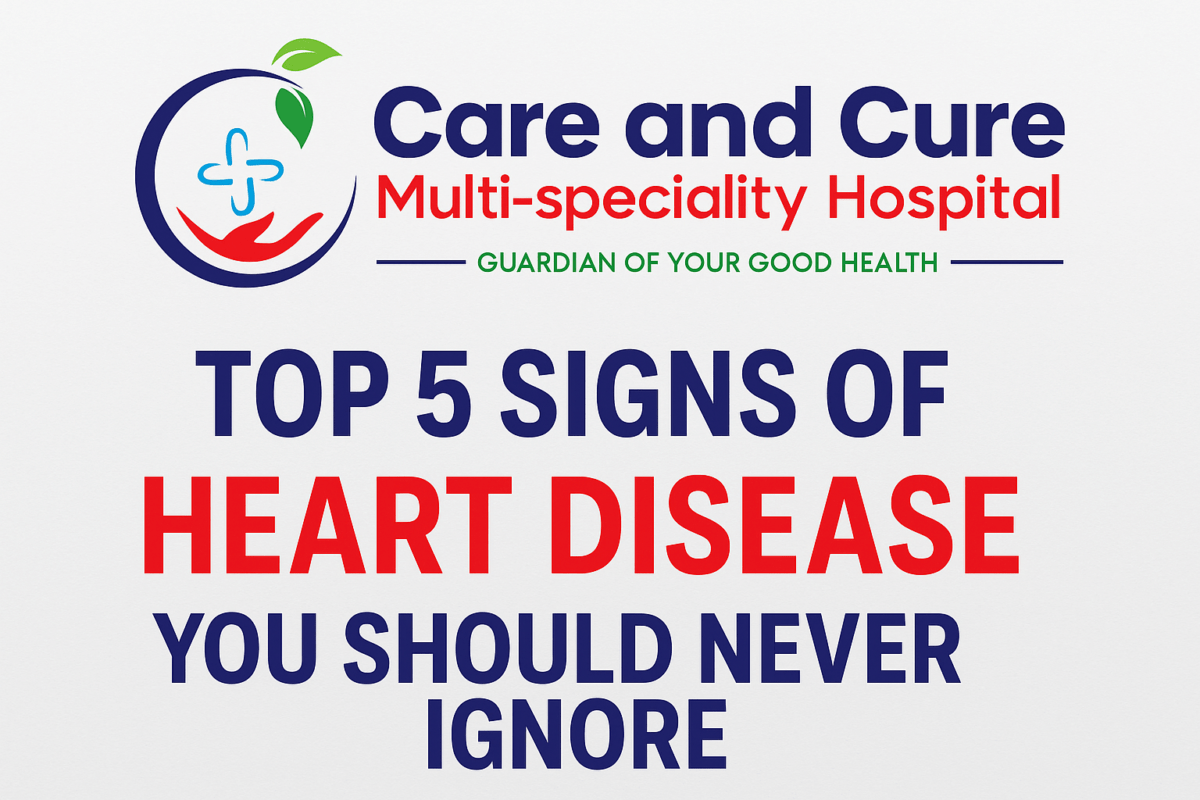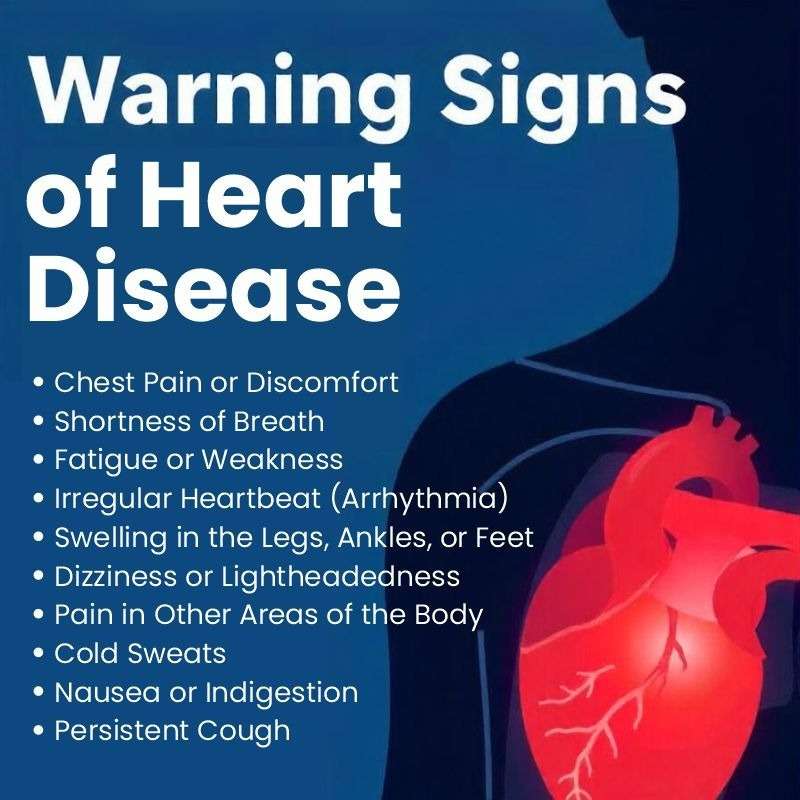Heart health is one of the most important aspects of overall well-being. The heart works continuously, pumping blood to every part of the body, supporting oxygen supply, and maintaining energy levels. When the heart is not functioning properly, symptoms can be silent or sudden—and in many cases, early detection can save lives.
In today’s fast-paced lifestyle, heart problems are becoming more common due to stress, unhealthy food habits, lack of exercise, smoking, diabetes, high blood pressure, and family history. That is why many people are actively searching for a trusted Cardiology Hospital in Ahmedabad for regular checkups, early diagnosis, and timely treatment.
At Care and Cure Multispeciality Hospital, cardiac patients receive professional evaluation and supportive care planning for heart-related symptoms and risk factors. Families searching for the Best Multispeciality Hospital in Ahmedabad often consider cardiology as one of the most critical departments because cardiac emergencies require fast action and the right medical support.
This complete guide explains the most common heart symptoms, cardiac tests, heart checkups, and when you should consult a cardiologist.
What Is Cardiology?
Cardiology is a medical specialty that deals with diagnosing and treating conditions related to the heart and blood vessels. A cardiologist is a doctor who treats:
High blood pressure (hypertension)
Chest pain and heart discomfort
Irregular heartbeat (arrhythmias)
Heart failure
Coronary artery disease
High cholesterol-related cardiac risks
Heart attack emergencies
Lifestyle-related heart conditions
Choosing a specialized Cardiology Hospital in Ahmedabad ensures accurate testing, early evaluation, and treatment options based on the patient’s current health status.

Why Heart Health Should Never Be Ignored
Many heart-related conditions develop slowly and do not show warning signs early. Some people feel mild symptoms but ignore them due to busy schedules. However, sudden worsening can cause severe issues.
A trusted Cardiology Hospital in Ahmedabad helps patients manage heart health through:
Preventive checkups
Risk assessment
Diagnosis testing
Emergency evaluation
Long-term monitoring
Regular heart checkups are highly recommended for:
People above 40
People with diabetes or BP issues
Smokers
People with obesity
People with a family history of heart disease
People with recurring fatigue or chest discomfort
If you are searching for a heart specialist in Ahmedabad, visiting a dedicated cardiac unit in a multispeciality hospital is a smart step.
Common Symptoms That Need Cardiology Evaluation
Heart problems can show different types of symptoms. Some are mild, while others require emergency support. You should consult a Cardiology Hospital in Ahmedabad if you experience any of the following:
1. Chest Pain or Chest Tightness
Chest pain may feel like pressure, heaviness, burning, or squeezing sensation. It can be related to heart conditions or other causes, but it should never be ignored.
If you are looking for chest pain treatment in Ahmedabad, consult a cardiology team to identify the cause quickly.
2. Shortness of Breath
Breathing difficulty during walking, climbing stairs, or even while resting may indicate heart problems, fluid buildup, or reduced heart pumping efficiency.
3. Palpitations (Fast or Irregular Heartbeat)
If you feel your heart is beating too fast, skipping beats, or fluttering frequently, it may require evaluation.
4. Excessive Sweating
Sudden sweating without exertion can be linked to cardiac stress, especially if it comes with chest pain.
5. Fatigue and Weakness
Continuous tiredness and weakness may be signs of heart-related issues, especially in older adults.
6. Swelling in Legs or Feet
Swelling may happen when the heart is unable to pump effectively, causing fluid buildup.
7. Dizziness or Fainting
Sudden dizziness or fainting can be linked to low blood flow, irregular heart rhythm, or blood pressure imbalance.
A timely check at a Cardiology Hospital in Ahmedabad can help prevent serious complications.
Top Heart Conditions Treated in Ahmedabad
A specialized Cardiology Hospital in Ahmedabad usually treats a wide range of cardiac conditions. Some of the most common include:
1) High Blood Pressure (Hypertension)
High BP is one of the biggest risk factors for heart attack and stroke. Many people don’t feel any symptoms until complications occur.
Why BP control matters
Uncontrolled BP can lead to:
Heart damage
Kidney issues
Stroke
Heart failure
Managing blood pressure requires lifestyle improvement, regular monitoring, and appropriate medication guidance.
2) Coronary Artery Disease
Coronary artery disease occurs when blood vessels supplying the heart become narrow due to plaque buildup. This reduces blood supply to the heart muscles and can lead to chest pain or heart attack.
3) Heart Attack (Myocardial Infarction)
Heart attack is a medical emergency where heart muscle does not receive enough oxygen due to blocked blood flow. Symptoms can include:
Chest pressure or pain
Pain in left arm, neck, or jaw
Shortness of breath
Sweating
Nausea
If these symptoms happen, immediate support from a Cardiology Hospital in Ahmedabad is essential.
4) Arrhythmias (Irregular Heartbeat)
Arrhythmias can cause fast heartbeat, slow heartbeat, or irregular rhythm. Some may be harmless, but others can cause serious complications and require medical supervision.
5) Heart Failure
Heart failure occurs when the heart cannot pump blood effectively. Symptoms include:
Breathlessness
Swelling in legs
Fatigue
Reduced exercise tolerance
Heart failure management needs careful monitoring and long-term support.
Heart Checkup in Ahmedabad: Why It’s Important
A preventive heart checkup in Ahmedabad can detect early signs of heart stress before symptoms become severe. Heart checkups are especially important for people with:
Diabetes
BP problems
Obesity
Smoking habit
Stressful lifestyle
Family history of cardiac disease
A Cardiology Hospital in Ahmedabad can help assess risk and guide lifestyle changes to prevent future complications.
Common Cardiac Tests Done in a Cardiology Hospital in Ahmedabad
Correct diagnosis depends on the right tests. A reliable Cardiology Hospital in Ahmedabad may recommend:
1. ECG (Electrocardiogram)
ECG records the electrical activity of the heart and helps detect irregular rhythms, heart stress, and heart attack signs.
2. ECHO (2D Echocardiography)
ECHO uses ultrasound to check heart structure, pumping function, valve performance, and heart muscle condition.
3. Blood Tests
Certain blood tests can help identify cholesterol levels, heart risk factors, and related health indicators.
4. Blood Pressure Monitoring
Regular BP monitoring helps evaluate long-term heart health risk.
5. Other Evaluations (As Needed)
Depending on symptoms, doctors may recommend further tests for deeper analysis.
These tests help a Cardiology Hospital in Ahmedabad create an accurate care plan for the patient.
Treatment Options in Cardiology
Cardiac treatment depends on diagnosis, risk level, symptoms, and patient history. A good Cardiology Hospital in Ahmedabad offers structured treatment planning, including:
1. Lifestyle Modification
This may include:
Healthy diet plan
Salt reduction
Exercise guidance
Weight management
Stress control
Sleep improvement
2. Medication Support
Medicines may be used to manage:
Blood pressure
Cholesterol
Heart rate and rhythm
Blood thinning support (if required)
3. Emergency Cardiac Support
In case of severe chest pain, suspected heart attack, or sudden breathlessness, emergency evaluation is critical. This is why people often choose the Best Multispeciality Hospital in Ahmedabad, where emergency support can be available.
How to Reduce the Risk of Heart Problems
Heart health can be improved with consistent habits. Here are proven steps:
✅ Quit smoking and limit alcohol
✅ Control BP and sugar
✅ Exercise regularly (even walking)
✅ Eat a balanced diet
✅ Manage stress
✅ Do regular heart checkups
A timely visit to a Cardiology Hospital in Ahmedabad can help you build a personalized prevention plan.
Why Choose a Multispeciality Hospital for Cardiac Care?
Cardiac conditions often require support from multiple specialties. A multispeciality hospital becomes beneficial when patients also have:
Diabetes
Kidney problems
Neurological issues
Emergency medicine requirements
ICU support
This is why many people compare the Top 10 Multispeciality Hospital in Ahmedabad when selecting a cardiac care provider. A multispeciality setup allows faster coordination between departments, making treatment smoother and safer.
Care and Cure Multispeciality Hospital for Cardiology in Ahmedabad
Care and Cure Multispeciality Hospital supports patients with heart-related symptoms through professional evaluation, monitoring, and care planning. For people searching for a dependable Cardiology Hospital in Ahmedabad, the hospital focuses on safety, patient comfort, and timely medical support.
When families search for the Best Multispeciality Hospital in Ahmedabad, they look for trusted doctors, qualified staff, and proper emergency preparedness. Cardiology is one of the most important departments in any multispeciality hospital, and choosing the right hospital helps ensure better long-term outcomes and improved confidence in treatment.
When to Seek Emergency Cardiac Help Immediately
Visit a Cardiology Hospital in Ahmedabad urgently if you experience:
Sudden chest pain or pressure
Pain radiating to left arm or jaw
Breathlessness with sweating
Fainting or loss of consciousness
Sudden weakness with rapid heartbeat
Delaying treatment can be risky, so emergency response matters.
Conclusion
Heart health should never be taken lightly. Conditions like high BP, arrhythmias, coronary artery disease, and heart failure require timely checkups and structured medical guidance. A preventive heart checkup and early diagnosis can protect you from serious complications.
If you are searching for a trusted Cardiology Hospital in Ahmedabad, consult a hospital that provides professional evaluation, accurate tests, and long-term support. Care and Cure Multispeciality Hospital continues to be a reliable choice for cardiac evaluation and management, especially for people comparing options in the Top 10 Multispeciality Hospital in Ahmedabad and looking for the Best Multispeciality Hospital in Ahmedabad.













